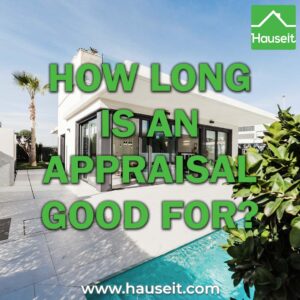This is because the Federal Housing Administration (FHA) allows for a 30-day extension of the appraisal’s initial validity period, followed by a 30-day extension of the updated appraisal.
The FHA allows for the extension of the initial appraisal’s validity period if the original appraisal was completed within the previous 210 days and there have been no changes to the property that would affect its value. The appraiser must provide a letter stating that the property’s value has not significantly changed, and the extension must be approved by the lender and the FHA.
If changes have occurred that could affect the property’s value, such as renovations or repairs, an updated appraisal may be necessary. In this case, the updated appraisal must be completed within 240 days of the original appraisal, and the lender must receive the final appraisal report before the expiration date. The updated appraisal will then be valid for 120 days, or approximately four months, from the date of the updated inspection.
It’s important to note that lenders may have their own policies regarding the validity of appraisals, and borrowers should always check with their lender to determine the specific requirements. Additionally, the extension of the validity period is not automatic and must be approved by the lender and the FHA.
In summary, an initial home appraisal may be updated, allowing it to remain valid for a total period of up to 240 days, provided that no changes have occurred that would affect the property’s value. If changes have occurred, an updated appraisal may be necessary, and the updated appraisal will be valid for 120 days from the date of the updated inspection. Borrowers should always check with their lender to determine the specific requirements regarding the validity of appraisals.







